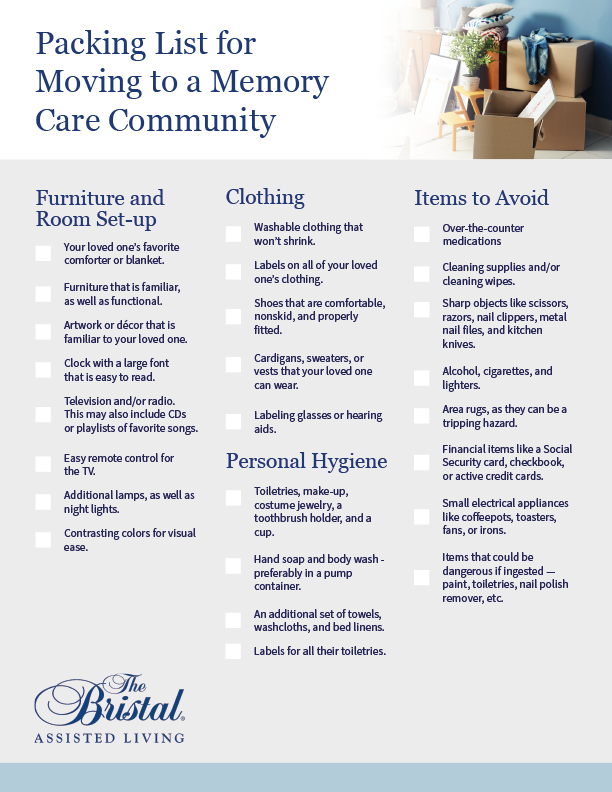Creating a Safe and Supportive Environment for Alzheimer's Care
The development of a secure and encouraging environment for people with Alzheimer's is extremely important in boosting their quality of life. Exploring these complex methods can reveal important insights right into reliable caregiving techniques that might change the everyday experiences of both caretakers and clients.
Recognizing Alzheimer's Requirements
Often, people with Alzheimer's disease display a variety of needs that need customized methods to care. As the condition progresses, cognitive decline materializes in numerous ways, impacting memory, thinking, and even the ability to carry out daily activities. Caretakers must recognize these developing needs to give ideal support and guarantee a higher top quality of life for those affected.
One important facet of recognizing Alzheimer's requirements is identifying the importance of regular and experience. People frequently locate convenience in well-known patterns, which can minimize stress and anxiety and confusion. Caretakers should aim to produce organized daily timetables that incorporate meaningful tasks lined up with the individual's capabilities and passions.
Additionally, effective communication is paramount. People with Alzheimer's might struggle to share themselves or comprehend complex language. Caregivers ought to utilize simple, clear language, usage non-verbal signs, and technique energetic paying attention to foster understanding and connection.
Finally, emotional and social demands can not be forgotten. Offering possibilities for social communication and preserving partnerships can considerably improve emotional well-being. Caretakers should motivate engagement in area tasks or household celebrations, promoting a feeling of belonging and objective. Recognizing these varied demands is necessary for developing a helpful care environment.
Creating a Safe Home
Producing a safe home for people with Alzheimer's disease is essential to promoting and decreasing risks independence. Ensure that paths are well-lit and clear, as correct illumination decreases disorientation and enhances flexibility.
Integrating adaptive features is additionally essential. Mount grab bars in bathrooms and near stairways, and consider making use of non-slip floor coverings in wet areas. In addition, making use of different colors for floors and walls can assist in differentiating spaces, aiding to alleviate complication.
Experience is necessary for people with Alzheimer's. Customizing the environment with familiar items and photographs can enhance a feeling of belonging and protection - Alzheimers Care Charlotte. It is likewise helpful to have actually an assigned area for day-to-day tasks, such as reading or crafting, which can offer structure to their day
Finally, applying a safe outdoor room permits safe exploration while getting in touch with nature. By thoughtfully developing the home setting, caregivers can significantly enhance the high quality of life for people dealing with Alzheimer's disease.
Enhancing Interaction Abilities

Non-verbal interaction, consisting of facial expressions, motions, and touch, plays an essential function in conveying empathy and understanding. Maintaining eye contact and a tranquil attitude can enhance the comfort degree of the individual, promoting a feeling of safety and security.
Furthermore, it is essential to practice active listening. This involves being completely present, showing persistence, and allowing the person to express themselves without interruption. Repetition might be necessary; caretakers should be prepared to review subjects or concerns, as individuals with Alzheimer's may fight with memory recall.
Furthermore, using visual help or hints, such as photos or acquainted items, can facilitate acknowledgment and involvement. Ultimately, improving communication abilities has to do with constructing depend on and developing an environment where individuals feel listened to, valued, and understood, thus improving their high quality of life.
Encouraging Social Interaction
Promoting purposeful social interactions can significantly boost the well-being of individuals with Alzheimer's condition. Involving with others not just assists fight sensations of seclusion yet additionally promotes cognitive function and emotional health. Structured social activities, such as team arts, crafts and games, or music therapy, create possibilities for homeowners to link with peers and caretakers, which can bring about enhanced state of mind and reduced stress and anxiety.
Developing an inviting environment that urges socialization is necessary. This can be achieved by setting up common rooms that facilitate communication, such as comfortable seating areas or task spaces. In addition, including culturally relevant and acquainted tasks can spark memories and motivate engagement, allowing people with Alzheimer's to feel more connected to their past experiences.
In addition, caregivers ought to be trained to identify and advertise social engagement amongst citizens. By prioritizing social communication, we can considerably enrich the lives of those living with Alzheimer's, cultivating a sense of area and belonging.
Sustaining Caregiver Well-being

To sustain caregivers, organizations need to use routine training and educational sources to improve their understanding of Alzheimer's illness and caregiving strategies. Providing accessibility to reprieve care solutions enables caregivers to take essential breaks, lowering stress and exhaustion - Alzheimers Care Charlotte. Furthermore, fostering a community via assistance groups can help with psychological find here sharing and the exchange of sensible more helpful hints recommendations amongst caregivers, creating a network of common support
Psychological health and wellness sources, such as therapy services, can likewise be important in addressing the psychological toll caregiving can take. By prioritizing caregiver health, we develop a more sustainable caregiving atmosphere that not just profits the caretakers themselves however also boosts the total high quality of care received by people with Alzheimer's. Eventually, supporting caregivers is an essential element in cultivating a efficient and caring treatment setting.
Conclusion
Finally, the creation of a supportive and risk-free setting for people with Alzheimer's is necessary to enhancing their lifestyle. By prioritizing security via thoughtful style, cultivating emotional well-being with acquainted aspects, and promoting involvement through structured regimens, caretakers can considerably affect the general experience of those influenced by this problem. Supporting caretaker wellness is crucial, as it eventually adds to a much more thoughtful and reliable care environment.
Rep might be essential; caregivers should be prepared to take another look at subjects or concerns, as individuals with Alzheimer's may struggle with memory recall.
